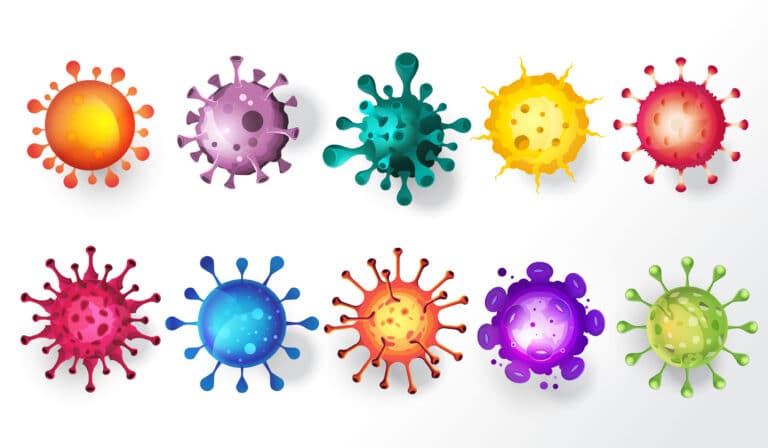10 Bacterial Diseases You Should Know About
Bacterial diseases are caused by harmful bacteria that can infect various parts of the body, leading to a wide range of health issues. Understanding these diseases is crucial for effective prevention, diagnosis, and treatment. Here are ten significant bacterial diseases you should be aware of:

1. Tuberculosis (TB)
Causative Agent: Mycobacterium tuberculosis
Tuberculosis primarily affects the lungs and is spread through airborne droplets from coughs or sneezes of an infected person. Symptoms include a persistent cough, chest pain, and coughing up blood. Early diagnosis and treatment are crucial to prevent its spread and serious health complications.
2. Streptococcal Pharyngitis (Strep Throat)
Causative Agent: Streptococcus pyogenes
Commonly known as strep throat, this infection affects the throat and tonsils, causing a sore throat, fever, and swollen lymph nodes. It spreads through respiratory droplets and direct contact with an infected person.
3. Lyme Disease
Causative Agent: Borrelia burgdorferi
Lyme disease is transmitted through the bite of infected black-legged ticks. Initial symptoms include fever, headache, fatigue, and a characteristic skin rash called erythema migrans. Without treatment, it can lead to joint, heart, and neurological problems.
4. Bacterial Meningitis
Causative Agents: Neisseria meningitidis, Streptococcus pneumoniae, Haemophilus influenzae
Bacterial meningitis is an inflammation of the protective membranes covering the brain and spinal cord. Symptoms include sudden high fever, stiff neck, severe headache, and confusion. It requires immediate medical attention due to its potentially life-threatening nature.
5. Pertussis (Whooping Cough)
Causative Agent: Bordetella pertussis
Whooping cough is a highly contagious respiratory disease characterized by severe coughing fits followed by a whooping sound. It is particularly dangerous for infants and young children. Vaccination is key for prevention.
6. Gonorrhea
Causative Agent: Neisseria gonorrhoeae
Gonorrhea is a sexually transmitted infection affecting the mucous membranes of the reproductive tract. Symptoms include painful urination and abnormal discharge. If untreated, it can cause severe reproductive issues, especially in women.
7. Syphilis
Causative Agent: Treponema pallidum
Syphilis progresses through stages, starting with painless sores at the infection site. If untreated, it can lead to serious complications affecting the heart, brain, and other vital organs. It is transmitted through direct contact with syphilitic sores during sexual activity.
8. Cholera
Causative Agent: Vibrio cholerae
Cholera is an acute diarrheal illness spread through contaminated water and food. Symptoms include severe diarrhea and vomiting, leading to rapid dehydration and death if not treated promptly. Access to clean water and proper sanitation are essential for prevention.
9. Plague
Causative Agent: Yersinia pestis
Known for causing the Black Death in the Middle Ages, plague can present in three forms: bubonic, septicemic, and pneumonic. It is transmitted through the bites of infected fleas or contact with infected animals. Symptoms vary but often include high fever and swollen lymph nodes.
10. Leprosy (Hansen’s Disease)
Causative Agent: Mycobacterium leprae
Leprosy is a chronic infectious disease that primarily affects the skin, peripheral nerves, upper respiratory tract, and eyes. Without treatment, it can lead to severe disfigurement and nerve damage. Fortunately, it is curable with proper medical intervention.
Conclusion
Understanding these bacterial diseases is crucial for effective prevention, diagnosis, and treatment. Education and awareness can help reduce the spread of these infections and improve health outcomes. Staying informed and adopting preventive measures, such as vaccination and proper sanitation, are essential to protect our health and that of those around us.